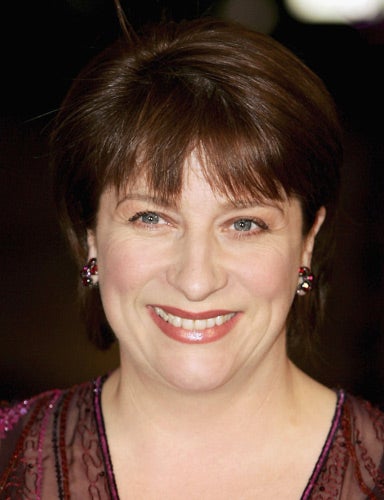Arts Council gives 11th-hour reprieve over funding cuts

Your support helps us to tell the story
From reproductive rights to climate change to Big Tech, The Independent is on the ground when the story is developing. Whether it's investigating the financials of Elon Musk's pro-Trump PAC or producing our latest documentary, 'The A Word', which shines a light on the American women fighting for reproductive rights, we know how important it is to parse out the facts from the messaging.
At such a critical moment in US history, we need reporters on the ground. Your donation allows us to keep sending journalists to speak to both sides of the story.
The Independent is trusted by Americans across the entire political spectrum. And unlike many other quality news outlets, we choose not to lock Americans out of our reporting and analysis with paywalls. We believe quality journalism should be available to everyone, paid for by those who can afford it.
Your support makes all the difference.It was set to be the bloodiest cull of the arts for more than half a century. But, in a dramatic 11th-hour reprieve, Arts Council England has been forced to reconsider potentially devastating funding cuts for dozens of organisations.
The news comes just two weeks after 500 of the country's top actors, including Sir Ian McKellen, Kevin Spacey and Joanna Lumley, crammed into the Young Vic theatre to grill the Arts Council's chief executive, Peter Hewitt, and pass a vote of no confidence in the council.
Despite a £50m increase in government funding over three years announced in October, the council decided now was the time to redistribute its cash. In letters delivered just before Christmas, 194 organisations learnt that their funding was to be slashed, with the cash to be redistributed to other groups. More than 700 were to see their grants go up at least by inflation while 211 were told to expect substantial increases. Eighty projects were to receive grants for the first time.
The rethink of the council's £417m budget is expected to be approved by the council at a board meeting tomorrow. The new budget will take effect on 1 April and last until 2011.
The proposed cuts would have forced some of the country's leading regional and fringe arts groups to close. The announcement led to fierce campaigning from Britain's acting fraternity.
Angry thespians, including Caroline Quentin and Alison Steadman, warned that the move would have a potentially disastrous knock-on effect, starving British theatre of new talent. Some of the more vitriolic criticisms of the policy came from Nicholas Hytner, the director of the National Theatre, who branded it "bollocks".
The victims also complained that they had only 18 working days to respond to the proposed cuts and that they had not previously been warned that the council had any concerns about them. Richard Pulford of the Theatrical Management Association said: "Some organisations have been told they're cut because they're not adventurous; others because they have a risky artistic agenda. There's no coherence. It's astounding."
Sir Christopher Frayling, the chairman of the Arts Council, said he had been persuaded to rethink some of the cuts by sustained and "reasoned argument" from campaigners. Among those likely to be spared are the Bush theatre in west London, where the writers Stephen Poliakoff and Mark Ravenhill began their careers, and the Northcott Theatre in Exeter, where John Nettles and Robert Lindsay once trod the boards. Others expected to escape at least some of the cuts include the London Mozart Players, a chamber orchestra, Queer Up North, a Manchester-based gay and lesbian arts festival, and Anjali Dance, a London company for dancers with learning difficulties.
It has become clear that some of the evidence upon which the Arts Council made its recommendations was wrong. The decision to remove a £52,000 grant for the National Student Drama Festival, where Stephen Fry, Simon Russell Beale, Rik Mayall and Timothy West once performed as undergraduates, was taken by the council's Yorkshire region, which is now judged to have failed to take into account the national significance of this festival.
More than 3,000 people signed a petition to save the festival, including Lord Lloyd-Webber, Nicholas Hytner, the West End producer Thelma Holt, and Baroness Blackstone, a former arts minister. It is understood that the festival will now be spared.
Join our commenting forum
Join thought-provoking conversations, follow other Independent readers and see their replies
Comments